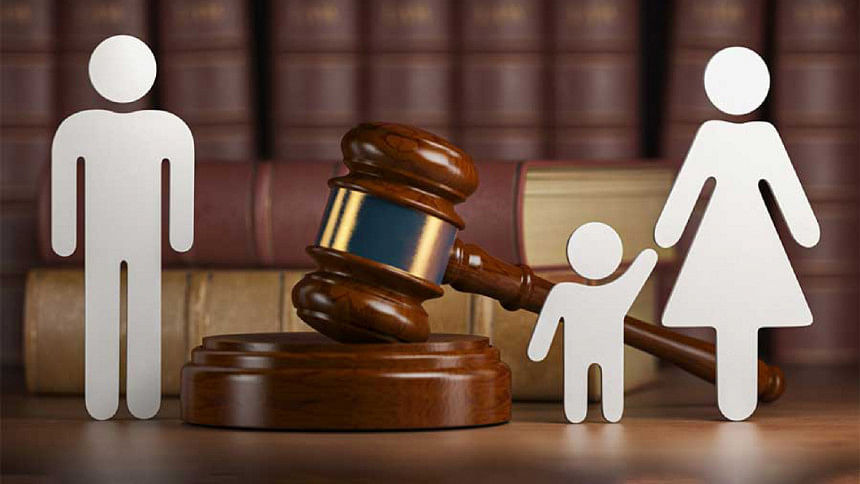Mothers as guardians: HCD's historic verdict

In a patriarchal society, a father's identity is prioritised over a mother's. As such, mothers and fathers were placed on different footing in registration or admission forms along with other official documents of the government. In fact, in certain cases, a mother's name could even be skipped. However, it was always mandatory for the father to be named in such forms. Fortunately, this discriminatory requirement has been addressed by the recent judgment of the High Court Division pronounced on 24 January 2023.
The judgment held that mothers can now be the sole legal guardian of their children. It is no longer mandatory to include the names of both parents in all official documents. In addition, a person's application cannot be rejected based on their unwillingness to provide the names of either one of their parents. The court's verdict will have several positive impacts. For one, this will be particularly important for the children of sex-workers or children who do not know the identity of their fathers. In addition, single mothers do not have to worry about reconnecting with the fathers of the children.
The public interest litigation writ petition in which the HCD delivered the judgment was jointly filed by Bangladesh Legal Aid and Services Trust (BLAST), Bangladesh Mahila Parishad, and Naripokkho on 2 August 2009, after a girl from Thakurgaon was denied the admit card for her SSC examination by the Rajshahi Education Board because she failed to name her father in the Student Information Form (SIF). Later on, the media reported that she was raised by her mother solely as her father had abandoned them.
The rule was disposed of by a bench consisting of Justice Naima Haider and Justice Md Khairul Alam, who delivered a verdict which will allow mothers to be presented as the sole legal guardian in such forms. All applauded this verdict as it solves a lot of complications for single mothers and fatherless children, and is a step forward in eliminating the discrimination against women.
Taslima Yasmin, Associate Professor of Law, the University of Dhaka, commended the supreme court's judicial activism while also noting the passivity of the legislators in bringing about reform in these areas. She said, "This decision has opened the gateways for the legislature to address the discrimination in other laws relating to custody and guardianship in Bangladesh and look towards a progressive future which puts the best interest of the child above all. The legislature now has the obligation to review all the existing forms which require the identity of both parents keeping in mind all the international obligations of Bangladesh and remove all the discriminatory provisions." She also expressed concern about the fourteen-year delay in pronouncing the judgment and noted that the justice system of the country needs to be more prompt. She further added, "In terms of ensuring gender equality, it is also important that our higher judiciary takes into consideration the grievances that were caused by the substantive delay in disposing of the writ petition".
For many years, students and single mothers have faced injustice, starting from admission in elementary schools up to higher education levels, due to this issue. Fathers having no contribution to their children's lives have been prioritised over the mothers raising. But verdicts like these appear as a beacon of hope for women across Bangladesh that equality can be achieved even if it is a slow, strenuous process.
The writer is an official contributor, Law desk, The Daily Star.

 For all latest news, follow The Daily Star's Google News channel.
For all latest news, follow The Daily Star's Google News channel. 



Comments